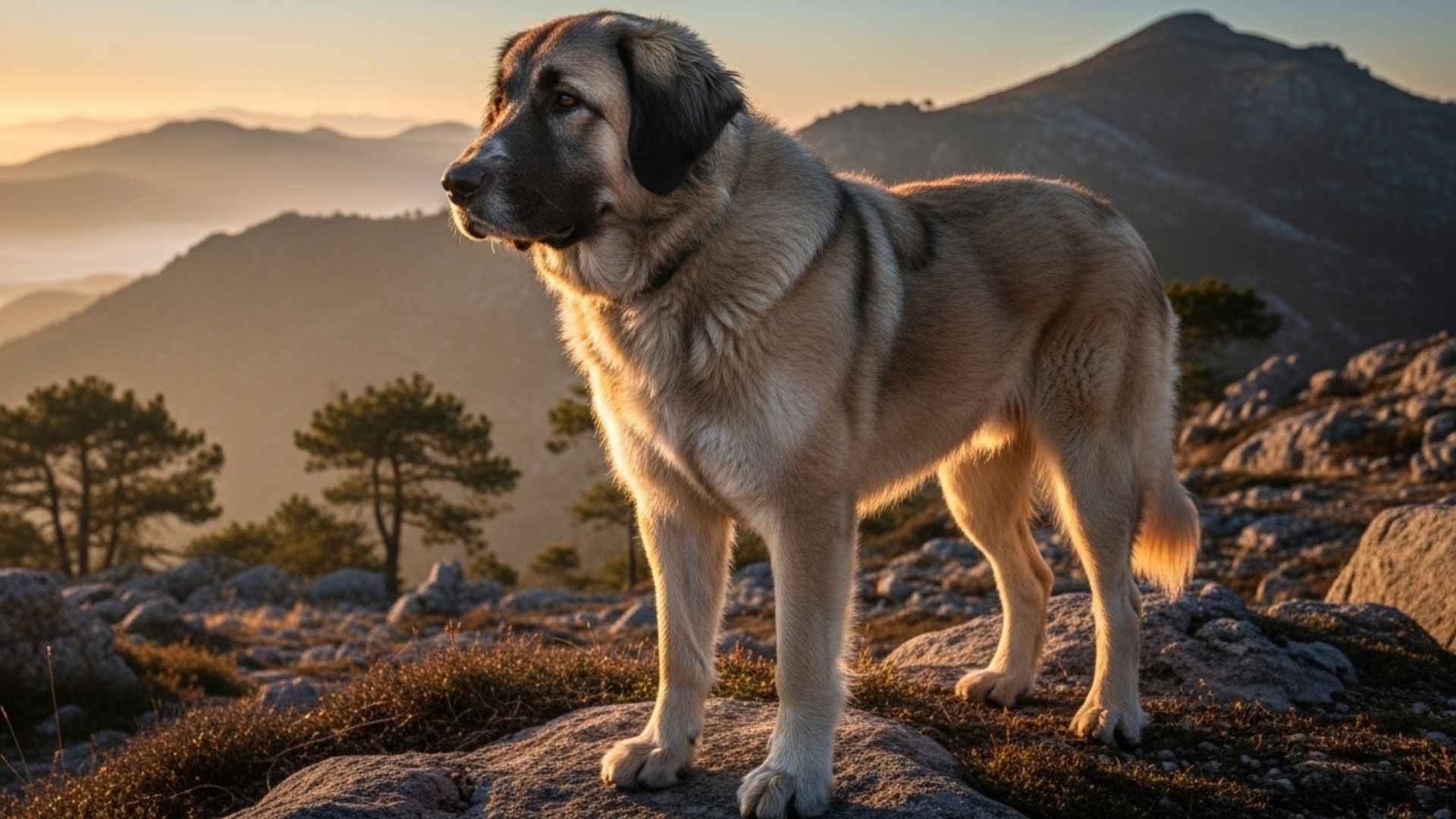So, you think “big” automatically means “scary,” huh? Oh, how wonderfully wrong you are. Some of the largest dogs in the world are basically oversized teddy bears with paws.
These gentle giants may look like they could guard a medieval castle, but spoiler alert: they’re more likely to guard your couch. And yes, they’ll probably steal your favorite pillow while they’re at it.
Their sheer size is impressive, sure—but their personalities? Even more unforgettable. Imagine being protected by a dog who’d also cry if you didn’t share your popcorn.
Families love them because they’re protective yet playful, loyal yet goofy. Basically, you get a built-in best friend who doubles as a furry body pillow.
So, ready to meet the rare giants who prove that bigger truly can mean sweeter? Buckle up—because these rare dogs are here to crush stereotypes… and maybe your lap.
Rare Large Dog Breeds That Are Gentle Giants Indeed
1. Leonberger
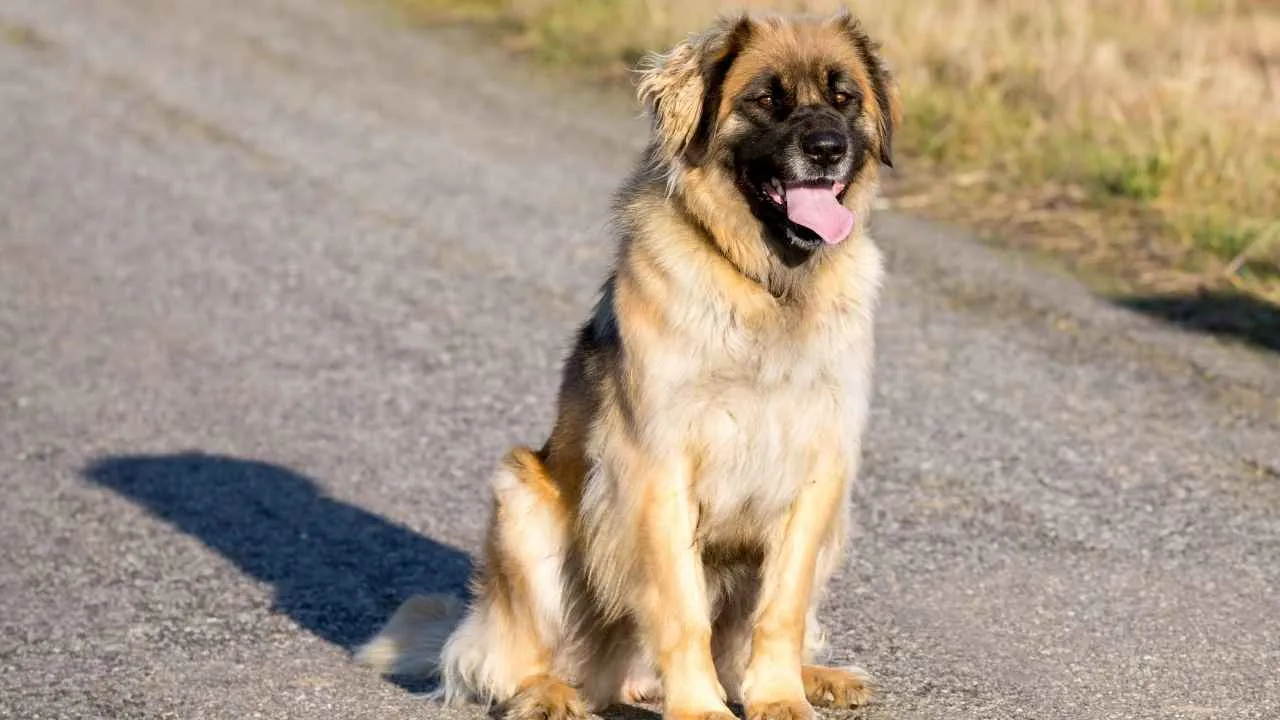
Ah, the Leonberger—so rare you might have a better chance spotting a unicorn at your local dog park. Bred in 19th-century Germany to look like a lion, these dogs are still hard to come by due to their selective breeding, and their sheer size explains the AKC. If you see one, count yourself lucky—you’ve just met dog royalty.
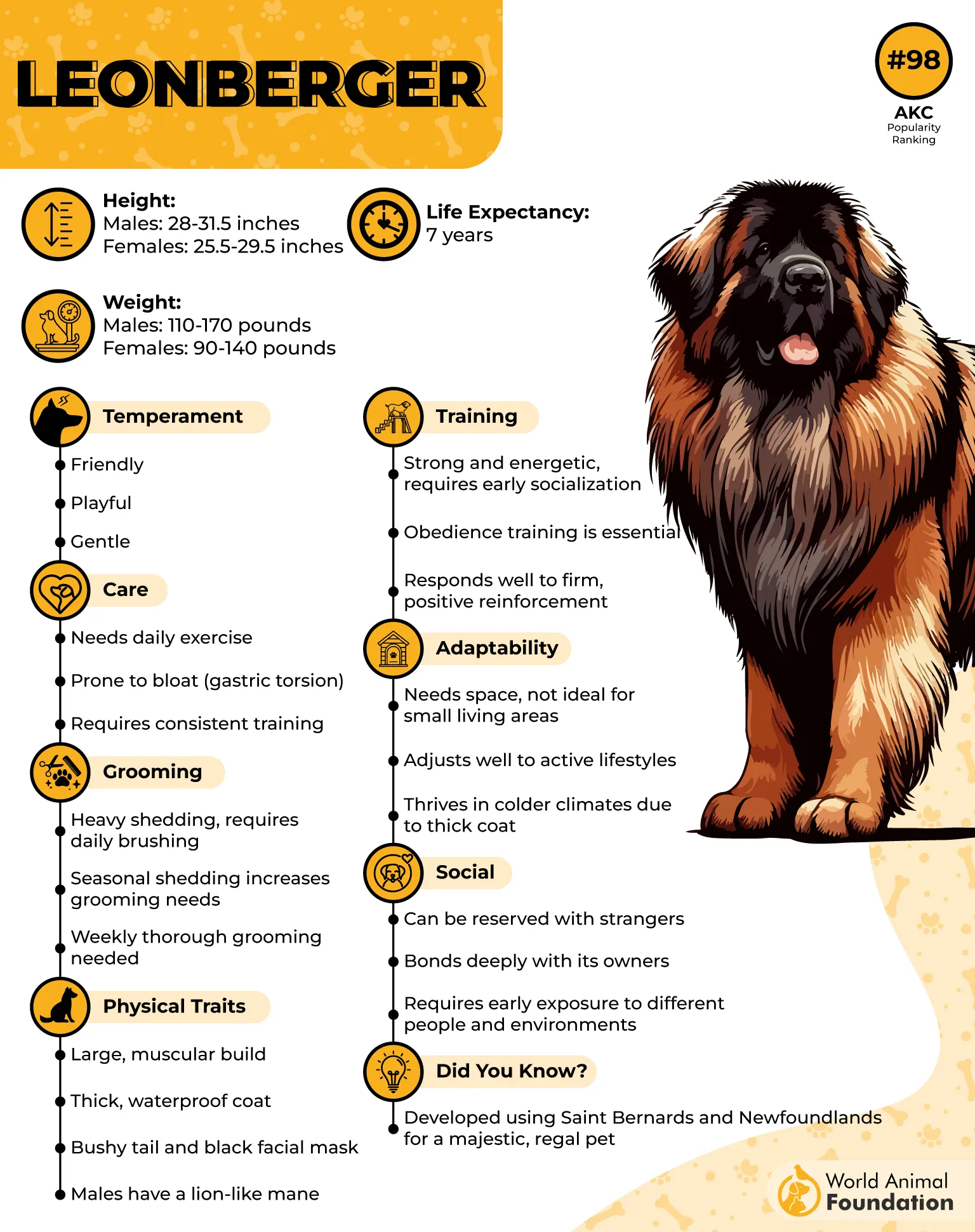
Massive but graceful, the Leonberger can easily outweigh your teenager yet melt hearts with their sweet temperament.
They have thick double coats, soulful eyes, and enough fur to knit an entire winter wardrobe. Personality-wise, they’re patient, affectionate, and the definition of a gentle giant.
Origin: Germany
Used for: Draft work, guarding, companionship
Exercise needs: High; daily walks and swimming thrills
Grooming needs: Heavy brushing (they shed like it’s their job)
Diet needs: A high-quality, protein-rich diet to support their size
If you’re a family with space, energy, and patience for drool and fluff, the Leonberger will happily become your loyal watchdog-slash-snuggle buddy. Just don’t expect to keep your furniture fur-free.
2. Neapolitan Mastiff
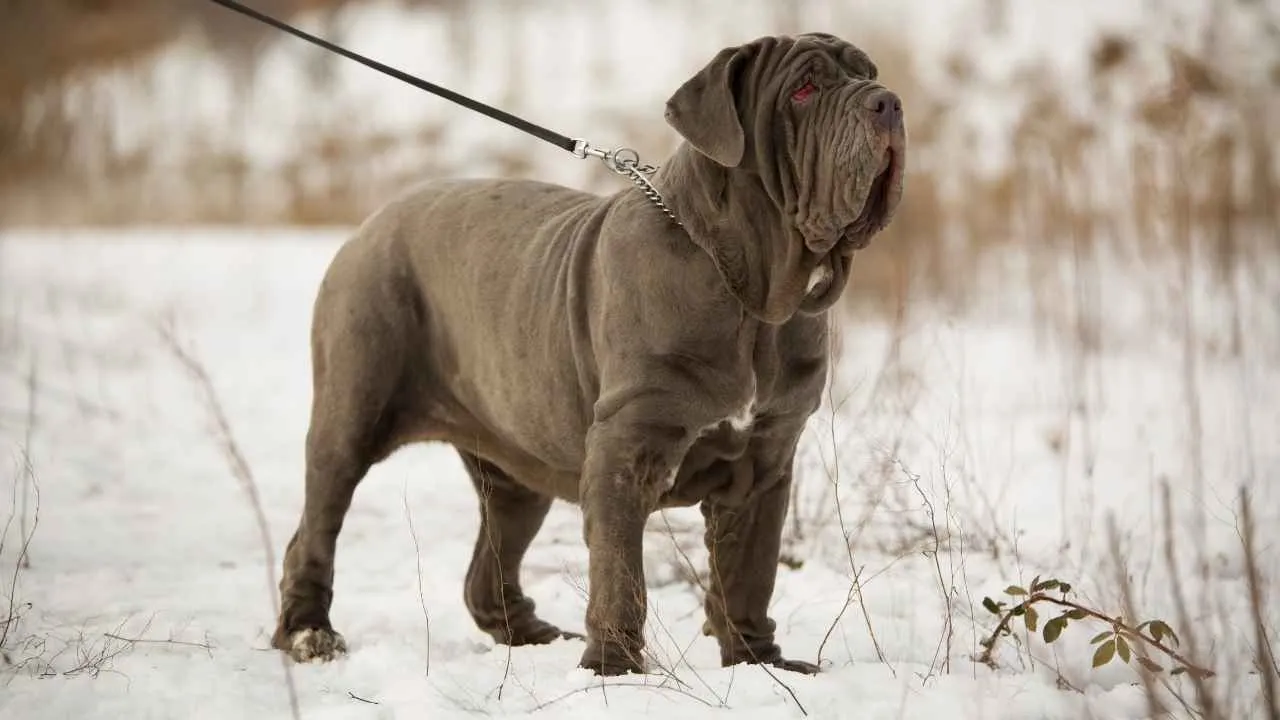
The Neapolitan Mastiff—aka the dog that looks like it borrowed all your laundry and wore it as wrinkles. Rare because not everyone is up for a giant, drooling, lumbering hunk of muscle, these dogs trace back to ancient Roman guard dogs.
They aren’t exactly popping up in every neighborhood, mostly because their care (and size) isn’t for beginners.
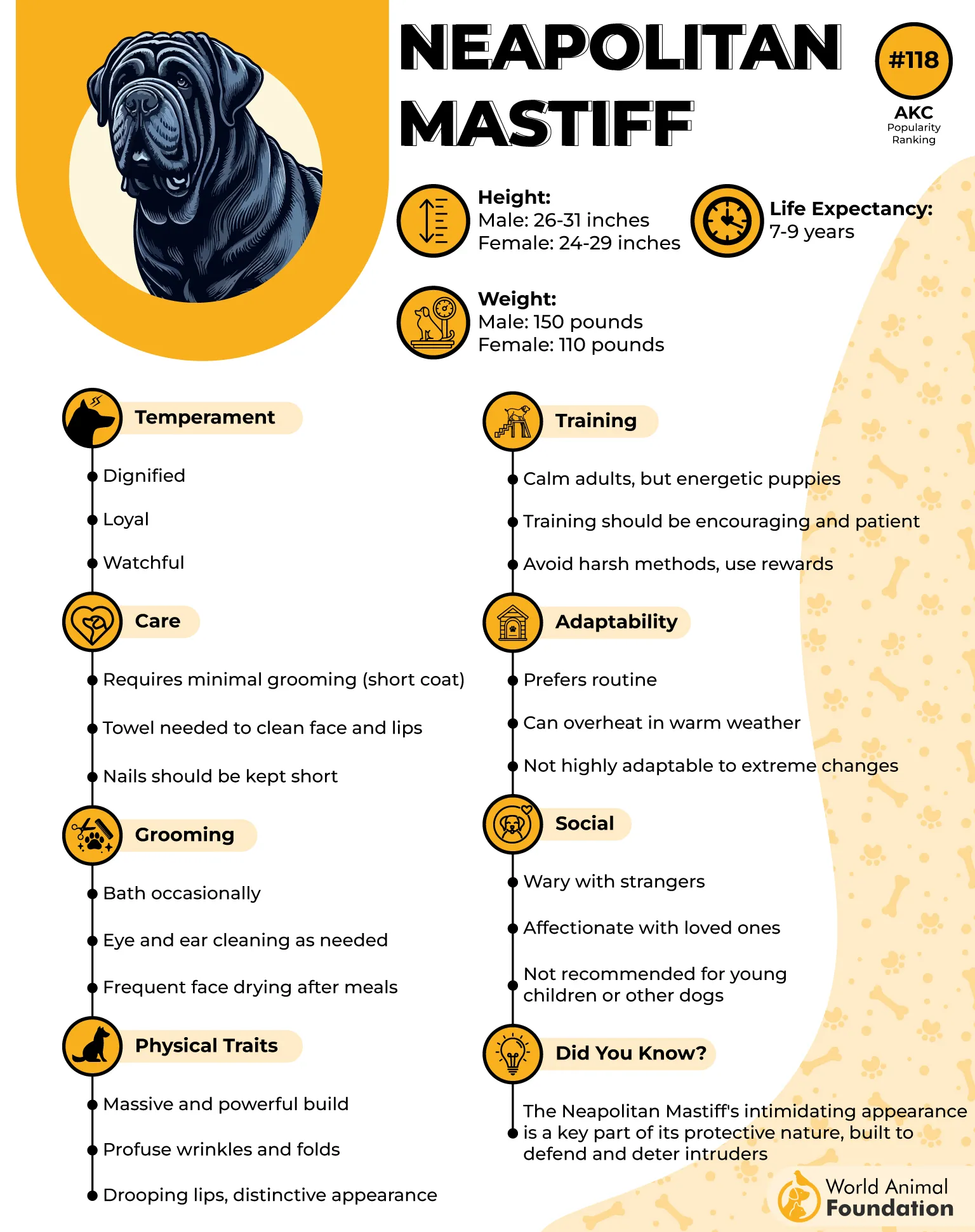
WebMD claims that their appearance is unforgettable: loose skin, saggy jowls, and a glare that could terrify an intruder before they even knock.
Yet behind that intimidating exterior lies a gentle, affectionate giant who loves family time and thinks they’re a lap dog (oops).
Origin: Italy
Used for: Guarding, protecting homes
Exercise needs: Moderate; short walks, not marathons
Grooming needs: Low, but those wrinkles need cleaning
Diet needs: Balanced meals, joint-friendly nutrition
The ideal owner? Someone who embraces slobber as a lifestyle choice. With plenty of space, firm training, and affection, the Neapolitan Mastiff thrives as a protective, loyal family member—think of them as your giant, wrinkly shadow.
3. Kuvasz
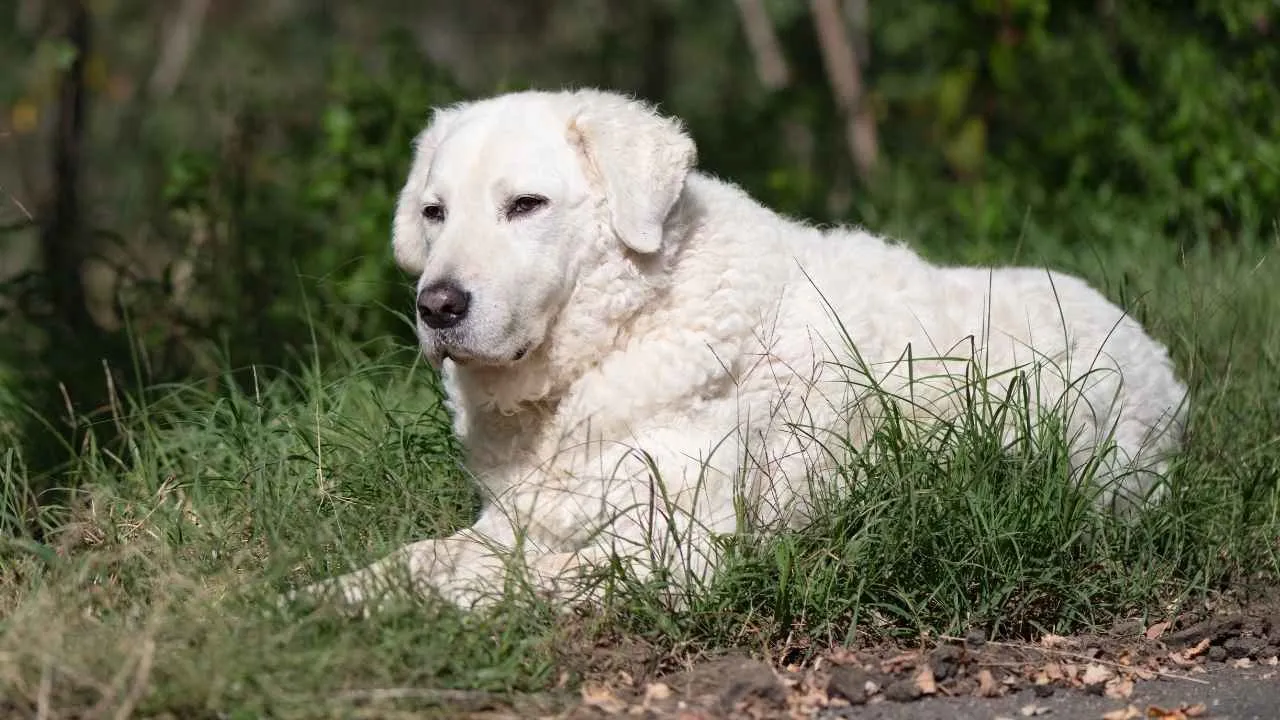
Meet the Kuvasz, Hungary’s best-kept fluffy secret. Rare because they’ve historically been bred as livestock guardians, these dogs haven’t flooded the pet market. Owning one is like having a living relic of history—dignified, protective, and a little bit aloof.
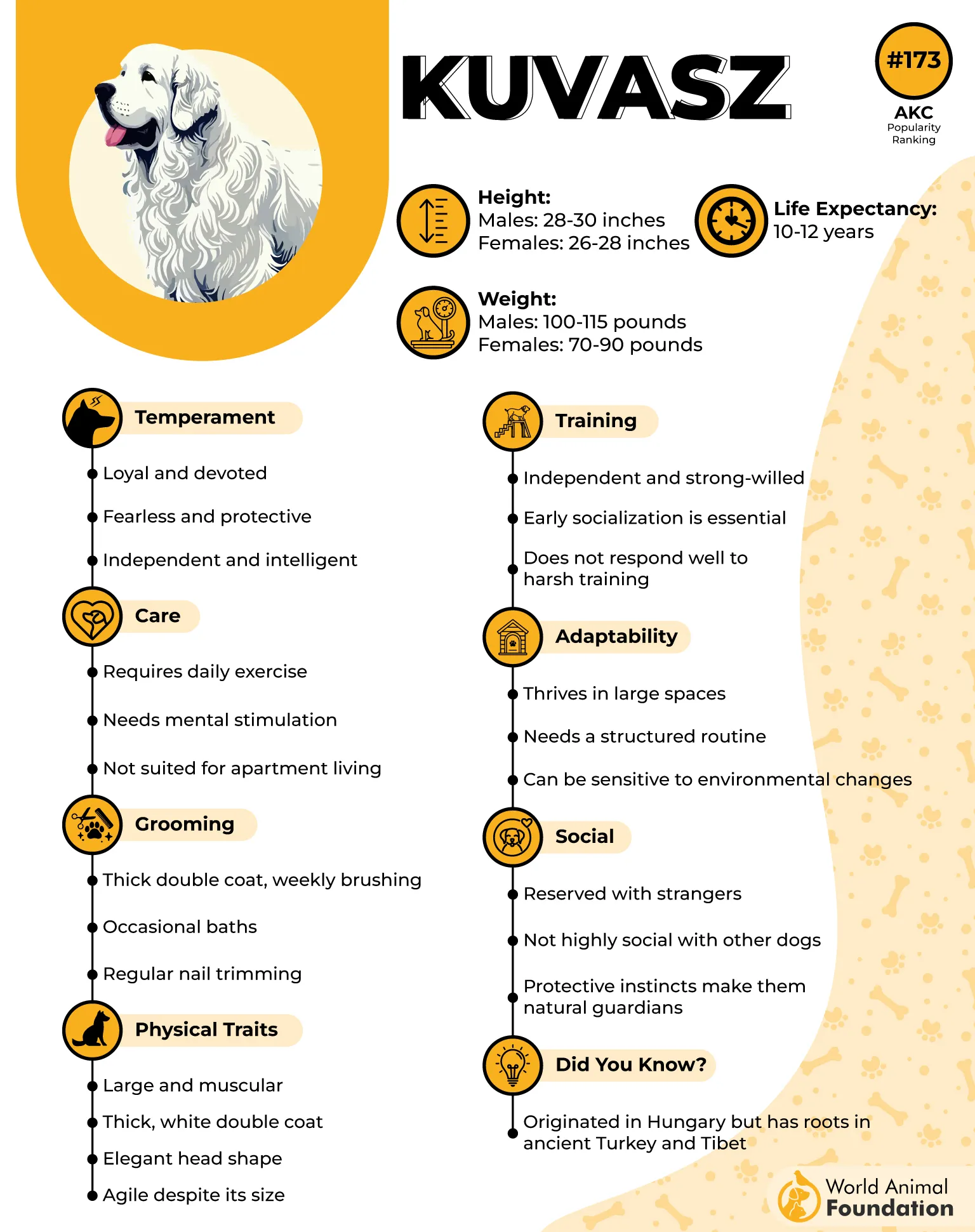
Hills Pet mentions that coated in snowy white fur, the Kuvasz has a regal presence that screams, “don’t mess with my flock (or family).”
They’re independent thinkers, which means training requires patience and a sense of humor. Loyal but not clingy, they’ll guard your home while pretending not to care about belly rubs (spoiler: they do).
Origin: Hungary
Used for: Guarding livestock, protecting property
Exercise needs: Moderate to high; hikes and yard play
Grooming needs: Regular brushing for their thick coat
Diet needs: Protein-rich, large-breed focused diet
Best suited for confident owners with space and structure, the Kuvasz thrives in environments where they can patrol, protect, and still sneak in family snuggles. Think watchdog meets fluffy best friend.
4. Estrela Mountain Dog
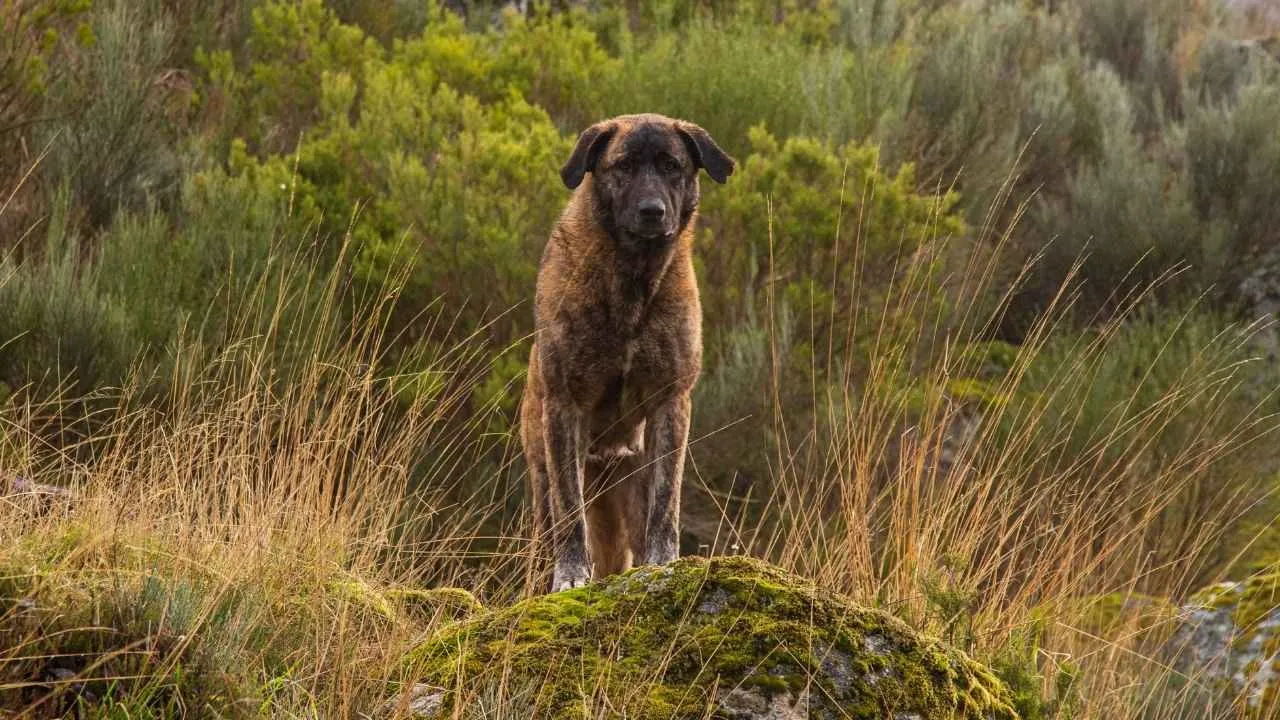
The Estrela Mountain Dog is rare partly because it hails from Portugal’s rugged Serra da Estrela mountains—and hasn’t been exported widely.
In its homeland, it’s legendary for protecting flocks and families, but outside of Portugal, it’s like the “hidden gem” of gentle giants.
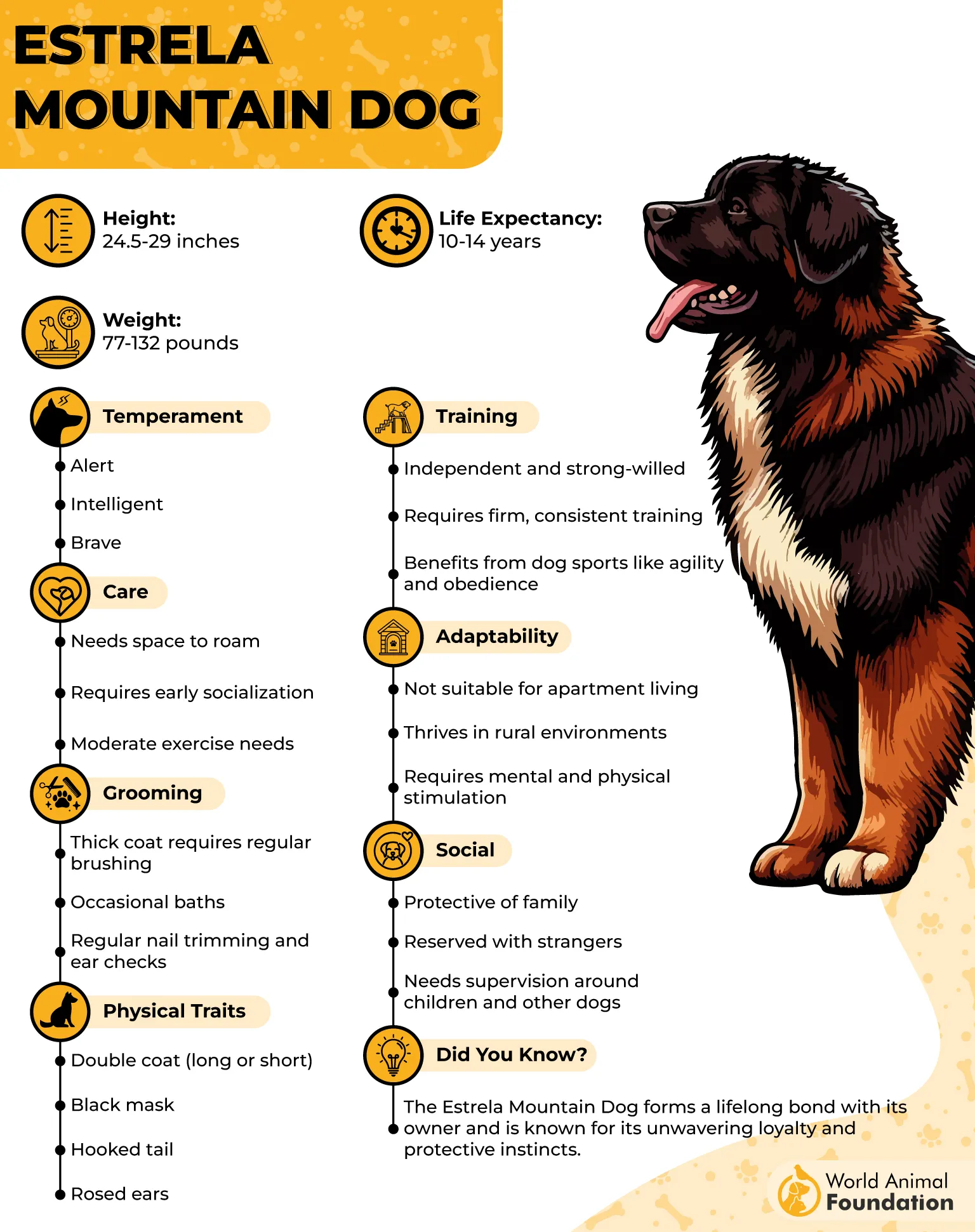
This breed is solid, muscular, and cloaked in a gorgeous, thick coat that could withstand icy winds. Don’t let their guardian instincts fool you; around family, they’re softies with a calm, affectionate nature. Their loyalty is fierce, but their cuddles are even fiercer.
Origin: Portugal
Used for: Herding, livestock guarding, family protection
Exercise needs: Daily walks plus room to roam
Grooming needs: Weekly brushing, more during shedding season
Diet needs: High-quality diet suited for working breeds
Perfect for rural or spacious homes, Estrelas do best with owners who appreciate their protective streak and don’t mind a side of stubbornness. They’re the kind of dog who’ll guard your heart—and your front door.
5. Komondor
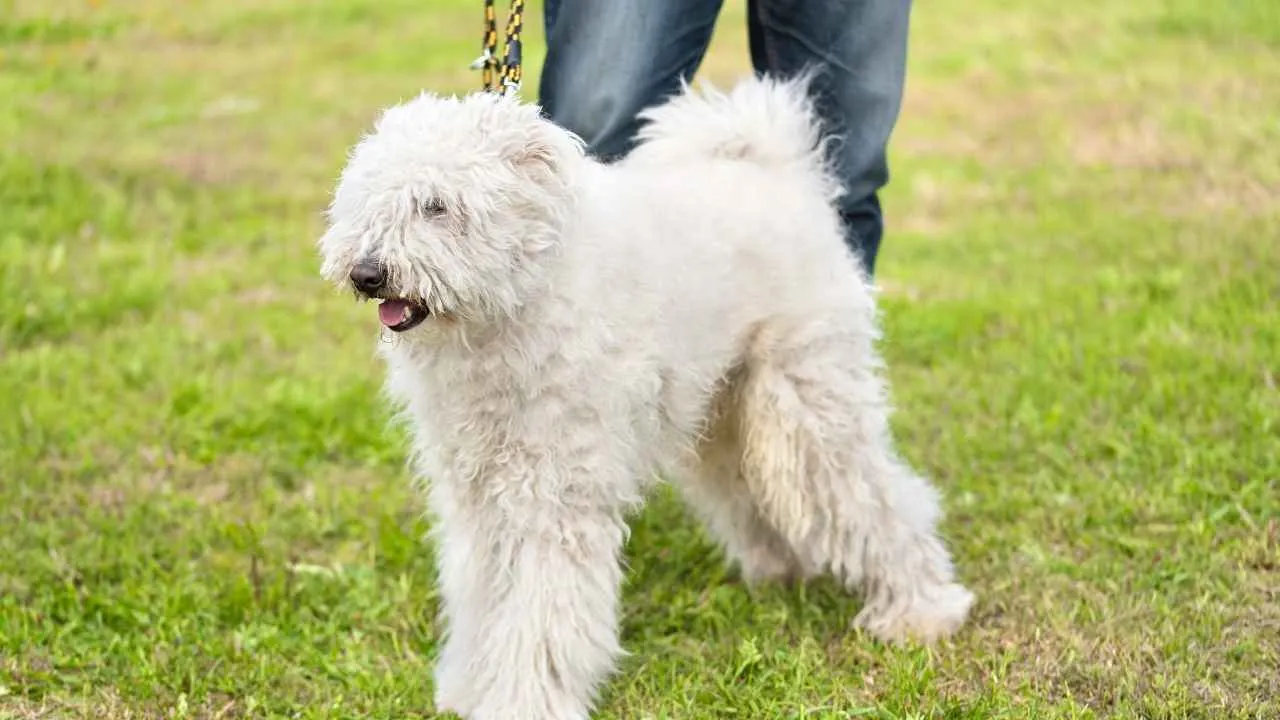
The Komondor is rare mostly because, well, not everyone wants a giant dog that doubles as a shag rug. Bred in Hungary as a livestock guardian, these corded giants are iconic—and unusual enough to stop traffic. Their rarity comes from selective breeding and the unique coat that requires serious commitment.
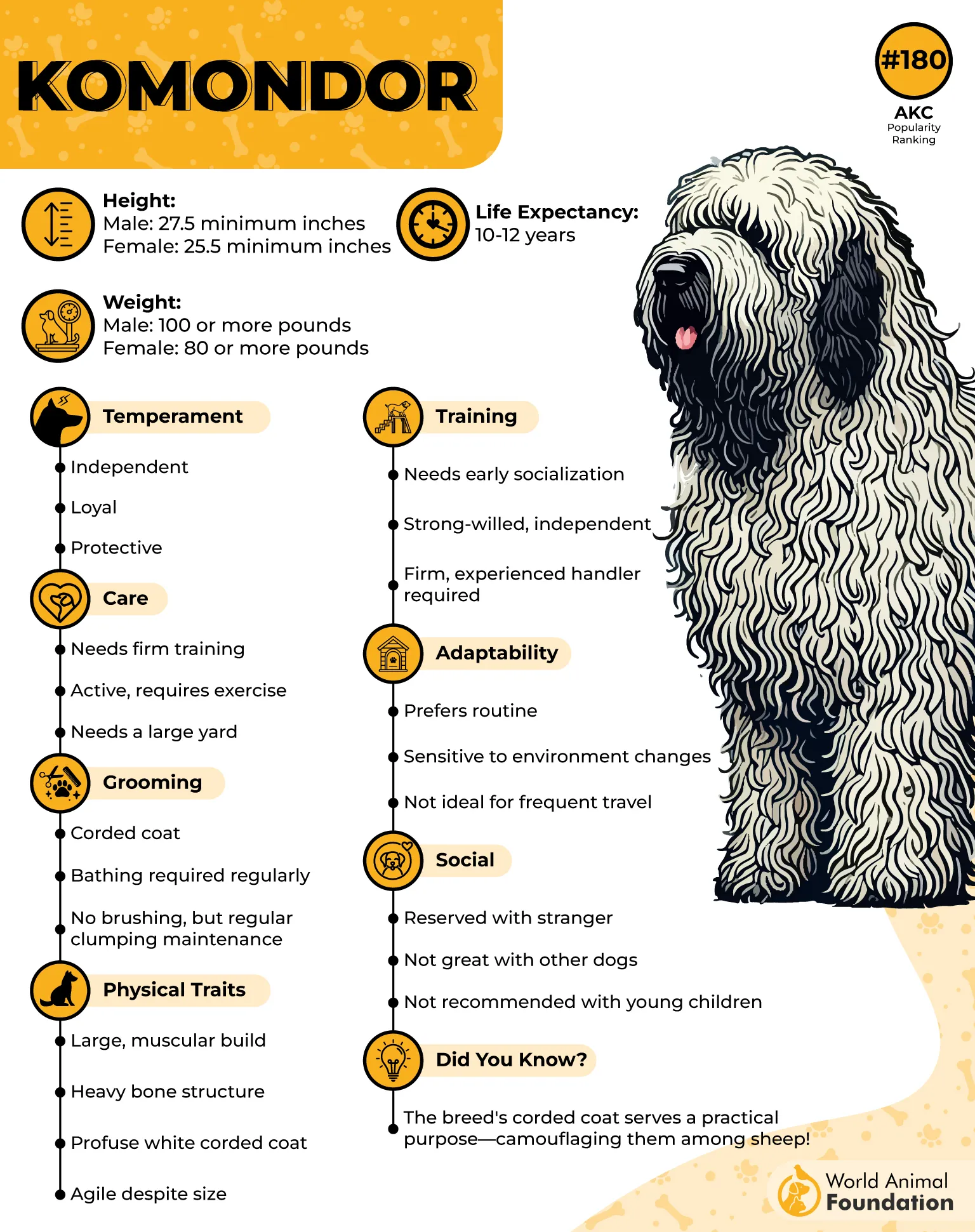
Physically, they look like a mop that came to life, with long, corded white locks. But don’t let the hair fool you—they’re powerful, athletic, and surprisingly agile under all that “stringy couture.” Personality-wise, they’re calm, protective, and smart, but they also come with an independent streak.
Origin: Hungary
Used for: Livestock guarding
Exercise needs: Moderate; they enjoy daily activity but aren’t marathoners
Grooming needs: Coat care is… an art form (lots of maintenance)
Diet needs: Balanced large-breed diet for strong joints
Best for patient, experienced owners who appreciate uniqueness, the Komondor thrives in homes where they can both protect and impress. Bonus: free floor mop jokes for life.
6. Chinook
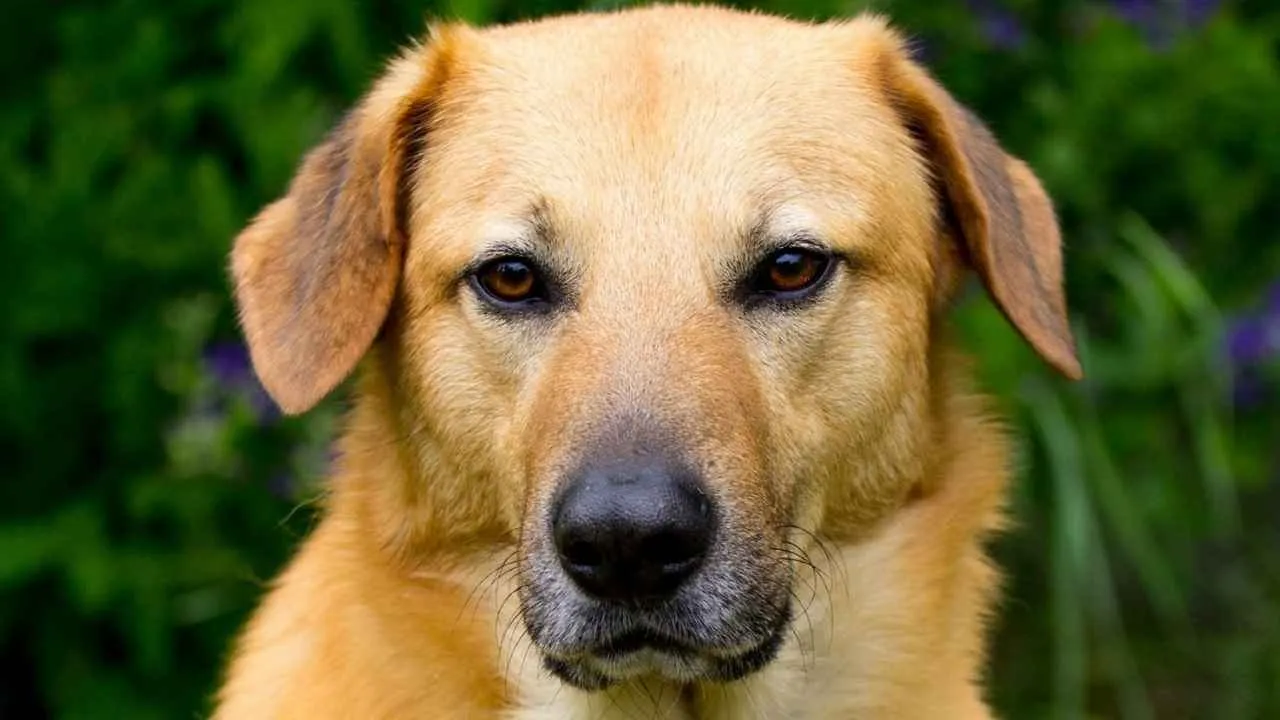
The Chinook is rare because it was bred in New Hampshire as a sled dog, but never went mainstream. At one point, the breed nearly went extinct—so yes, spotting one today is like finding a limited-edition vintage collectible… except cuddlier.
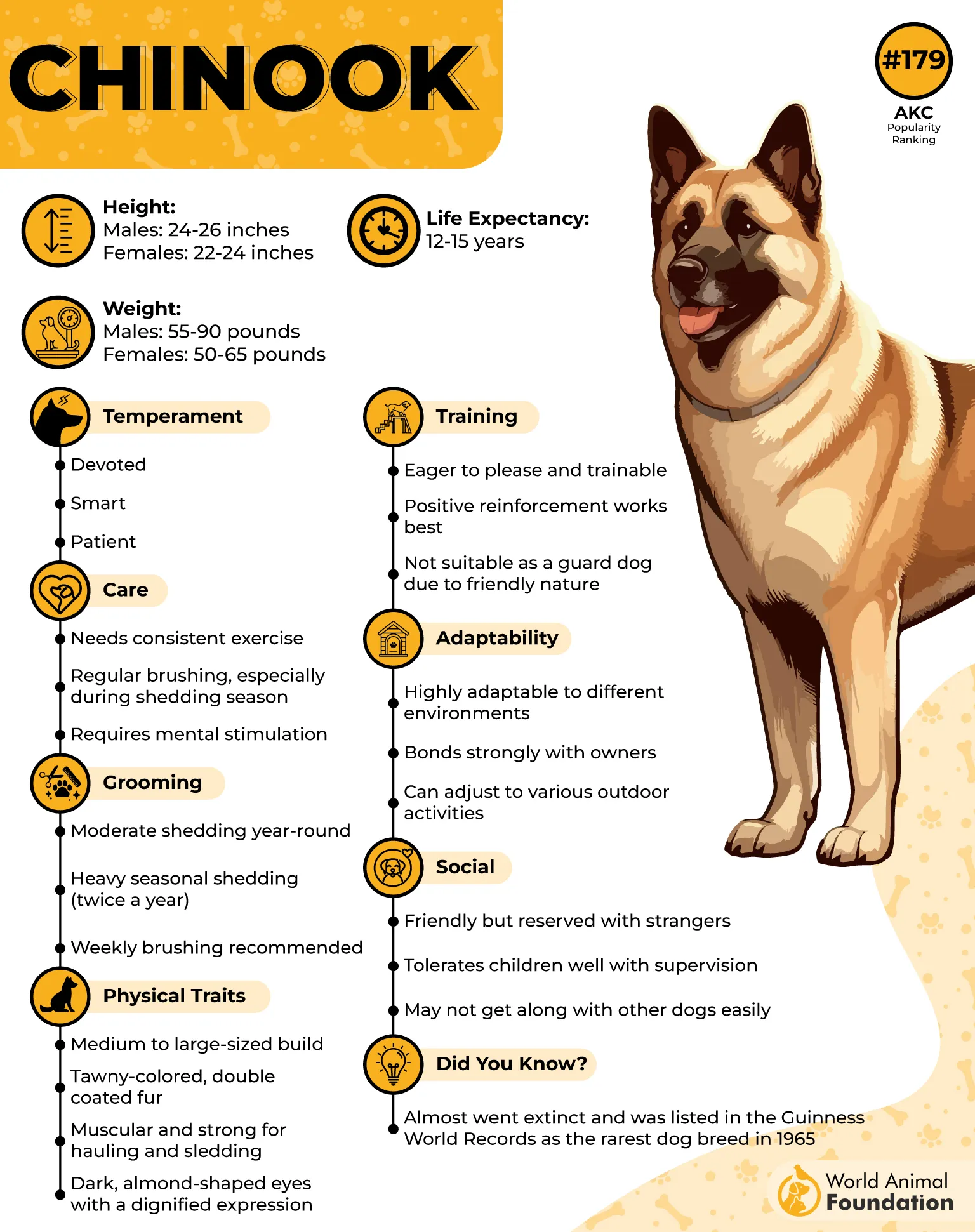
These dogs are athletic but mellow, muscular but soft-hearted. They sport a tawny coat, a balanced build, and personalities that scream “family-friendly.” Chinooks are affectionate, intelligent, and thrive on being part of the pack.
Origin: United States (New Hampshire)
Used for: Sled pulling, companionship
Exercise needs: High; they love outdoor adventures
Grooming needs: Easy; weekly brushing keeps things tidy
Diet needs: Nutritious, energy-rich food for active lifestyles
The Chinook’s ideal family is outdoorsy, affectionate, and ready for dog hair on everything. Whether hiking, running, or just couch-napping, this breed thrives in active, loving households. Think of them as rare adventure buddies with wagging tails.
7. Otterhound
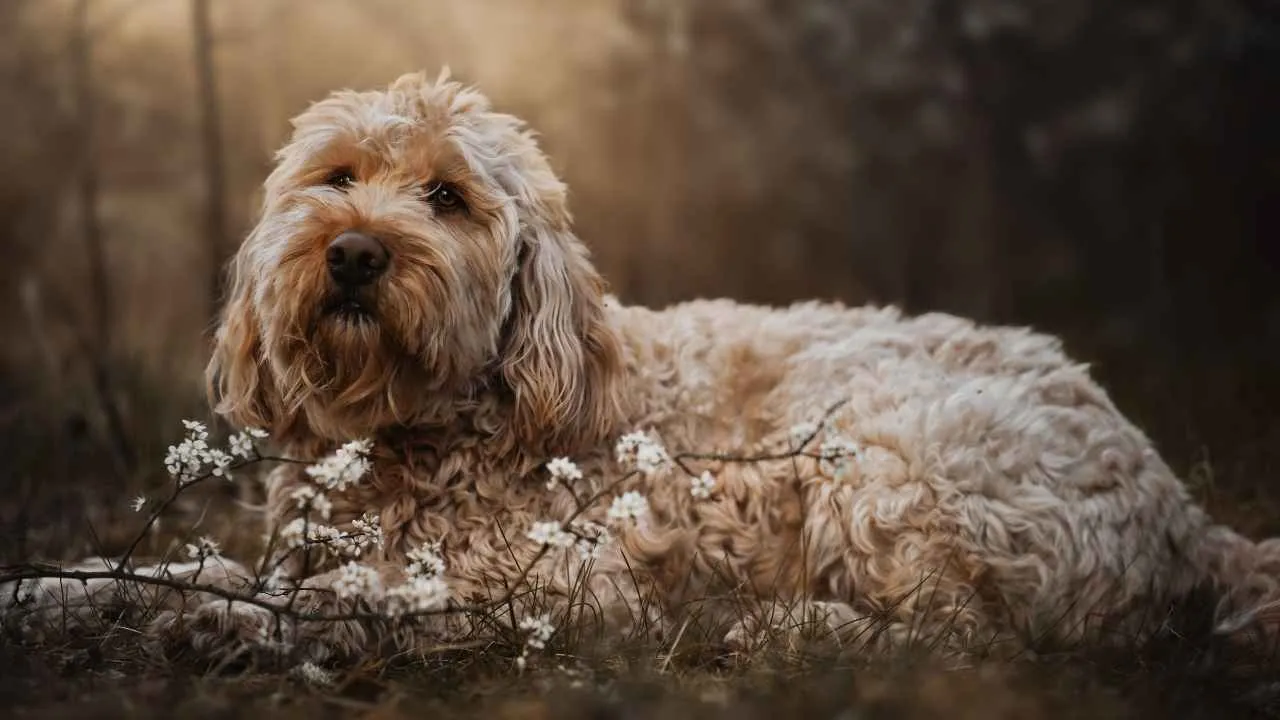
Why so rare? Because Otterhounds were literally bred for hunting otters—a job that became, well, unnecessary once otter hunting was banned. With small numbers worldwide, they’re one of the hardest breeds to find, making them a true treasure for dog lovers.
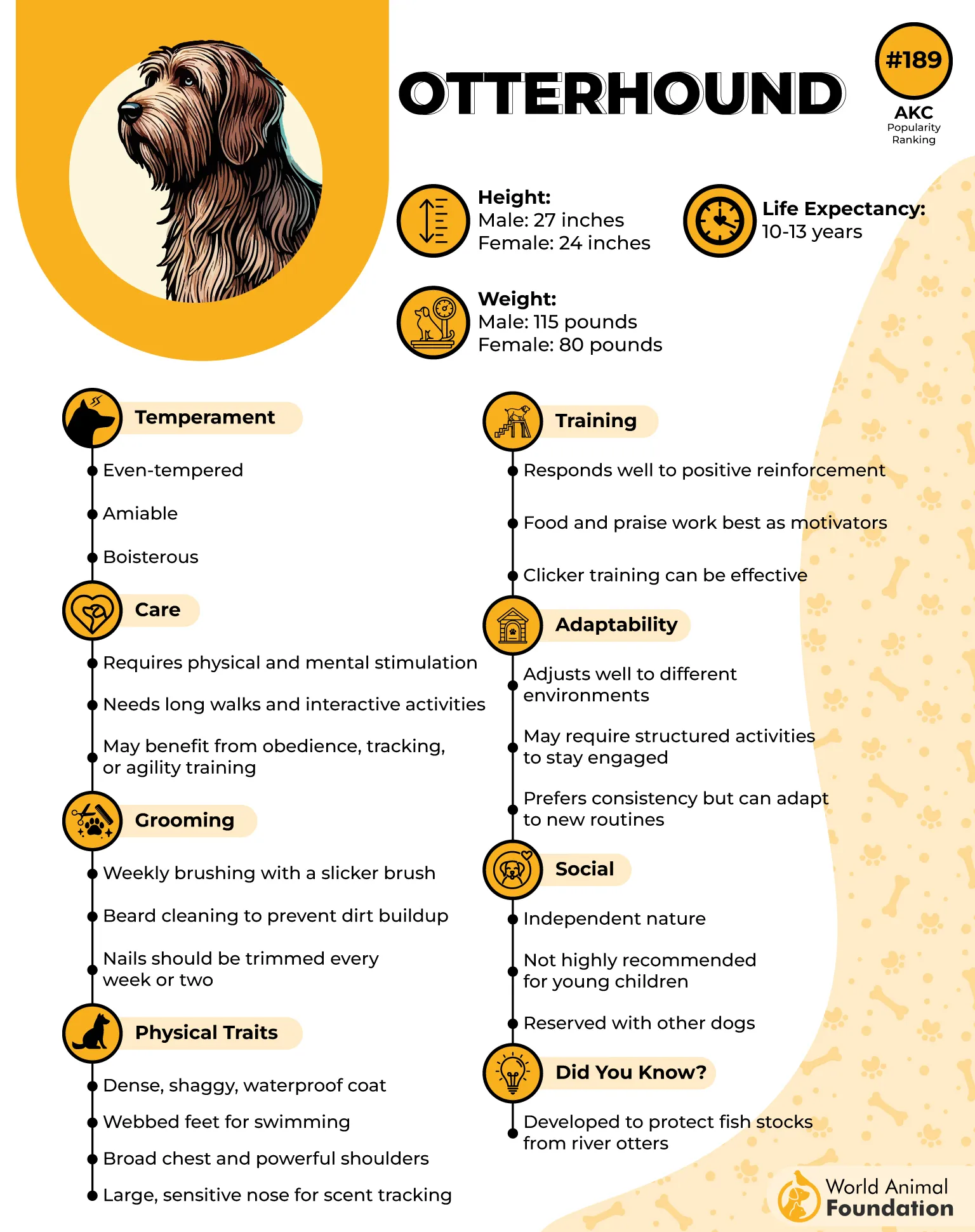
They’re big, scruffy, and goofy, with webbed feet and a nose that could sniff out last week’s snacks under your couch.
Personality-wise, they’re friendly, clownish, and built for water adventures. Expect a dog that’s equal parts hound and hilarious.
Origin: United Kingdom
Used for: Otter hunting (retired from the job now)
Exercise needs: High; long walks, swims, and playtime
Grooming needs: Regular brushing; coat can mat easily
Diet needs: Nutritious, balanced meals to support energy
Best for families with a sense of humor and love for outdoor fun, the Otterhound is affectionate, loyal, and always ready for a splash. Basically, they’re the rare water-loving comedian of the dog world.
FAQs
1. Are there rare giant breeds that are safe and friendly with kids?
Absolutely! Many giant dog breeds, despite their imposing size, have a gentle nature and patient temperament. With early training and socialization, they become excellent family pets and wonderful family companions for children.
2. Do gentle giant breeds require extensive grooming?
Some do, some don’t—welcome to the canine world’s version of “pick your challenge.” Breeds with thick or long coats (think Great Pyrenees or Leonberger) need regular brushing, while short coat giants (like Mastiffs) are lower maintenance but still shed… everywhere.
3. Can large, gentle breeds live comfortably in apartments or smaller homes?
Surprisingly, yes! Many big dog breeds with a calm demeanor and loving personality are highly adaptable. As long as they get regular exercise, mental stimulation, and unconditional love, these giant companions can thrive even without a mansion-sized backyard.
Conclusion
Big dog breeds may look intimidating, but their gentle nature and calm demeanor make them excellent family dogs and wonderful companions for children and loved ones alike.
Other breeds not covered here—like the Bernese Mountain Dog, Great Pyrenees, Irish Wolfhounds, Tibetan Mastiff, Alaskan Malamute, and Black Russian Terrier—were originally bred as working dogs but are now fantastic companions with protective instincts and patient temperament.
Despite their imposing size, these large-breed dogs are highly adaptable, loyal, and protective, and the perfect fit for dog owners seeking unconditional love and gentleness.


